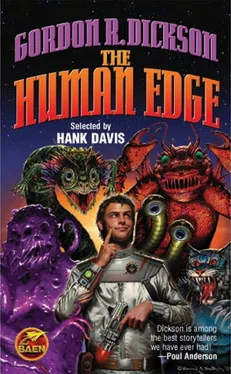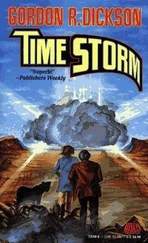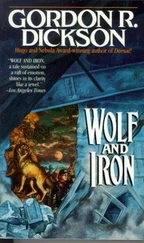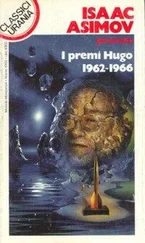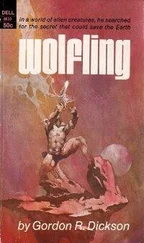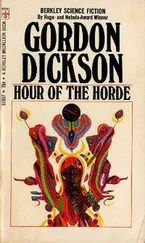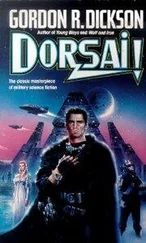It was almost a relief when the human authorities gave him a sealed answer to the proposal he had brought, and sent him on his way home a few days later. He carried that last question of his away with him.
* * *
The only conclusion I can come to,” said the Envoy to the chief authority among the Mologhese, a week and a half later as they both sat in the Chief’s office, “is that there is some kind of racial insanity that sets in in times of peace. In other words, they’re Conquerors in the true sense only when engaged in Conquest.”
The Chief frowned at the proposal answer, still sealed on the desk before him. He had asked for the Envoy’s report before opening it; and now he wondered if this traditional procedure had been the wisest move under the circumstances. He rather suspected the Envoy’s wits of having gone somewhat astray during his mission.
“You don’t expect me to believe something like that,” said the Chief. “No culture that was insane half the time could survive. And if they tried to maintain sanity by continual Conquest, they would bleed to death in two generations.”
The Envoy said nothing. His Chief’s arguments were logically unassailable.
“The sensible way to look at it,” said the Chief, “is to recognize them as simply another Conqueror strain with somewhat more marked individual peculiarities than most. This is—let us say—their form of recreation, of amusement, between conquests. Perhaps they enjoy playing with the danger of cultivating strength in their conquered races.”
“Of course, there is that,” admitted the Envoy. “You may be right.”
“I think,” said the Chief, “that it’s the only sensible all-around explanation.”
“On the other hand—” the Envoy hesitated, remembering. “There was the business of that female human patting the small Bahrin on the head.”
“What about it?”
The Envoy looked at his Chief.
“Have you ever been patted on the head?” he asked. The Chief stiffened.
“Of course not!” He relaxed slowly, staring at the Envoy. “Why? What makes you ask that?”
“Well, I never have either, of course—especially by anyone of another race. But that little Bahrin liked it. And seeing it gave me—” the Envoy stopped to shiver again.
“Gave you what?” said the Chief.
“A… a sort of horrible, affectionate feeling—” The Envoy stopped speaking in helplessness.
“You’ve been overworking,” said the Chief, coldly. “Is there anything more to report?”
“No,” said the Envoy. “No. But aside from all this, there’s no doubt they’d be a tough nut to crack, those humans. My recommendation is that we wait for optimum conditions before we choose to move against them.”
“Your recommendation will go into the record, of course,” said the Chief. He picked up the human message capsule. “And now I think it’s time I listened to this. They didn’t play it for you?”
The Envoy shook his head.
The Chief picked up the capsule (it was one the Envoy had taken along for the humans to use in replying), broke its seal and put it into the speaker unit of his desk. The speaker unit began to murmur a message tight-beamed toward the Chiefs ear alone. The Envoy sat, nursing the faint hope that the Chief would see fit to let him hear, later. The Envoy was very curious as to the contents of that message. He watched his Chief closely, and saw the other’s face slowly gather in a frown that deepened as the message purred on.
Abruptly it stopped. The Chief looked up; and his eyes met the Envoy’s.
“It just may be,” said the Chief slowly, “that I owe you an apology.”
“An apology?” said the Envoy.
“Listen to this—” The Chief adjusted a volume control and pressed a button. A human voice speaking translated Mologhese filled the room.
“The Committee of Control for the human race wishes to express its appreciation for—”
“No, no—” said the Chief. “Not this diplomatic slush. Farther on—” He did things with his controls, the voice speeded up to a gabble, a whine, then slowed toward understandability again. “Ah, listen to this.”
“…Association,” said the voice, “but without endorsement of what the Mologhese Authority is pleased to term the Conqueror temperament. While our two races have a great deal in common, the human race has as its ultimate aims not the exercises of war and oppression, plundering, general destruction and the establishment of a tyranny in a community of tyrants; but rather the establishment of an environment of peace for all races. The human race believes in the ultimate establishment of universal freedom, justice, and the inviolable rights of the individual whoever he may be. We believe that our destiny lies neither within the pattern of conquest nor submission, but with the enlightened maturity of independence characterized by what are known as the Shielded Worlds; and, while not ceasing to defend our people and our borders from all attacks foreign and domestic, we intend to emulate these older, protected peoples in hope that they may eventually find us worthy of association. In this hope—”
* * *
The Chief clicked off the set and looked grimly at the Envoy. The Envoy stared back at him in shock.
“Insane,” said the Envoy. “I was right—quite insane.” He sank back in his seat “At any rate, you too were correct. They’re too irrational, too unrealistic to survive. We needn’t worry about them.”
“On the contrary,” said his Chief. “And I’m to blame for not spotting it sooner. There were indications of this in some of the preliminary reports we had on them. They are very dangerous.”
The Envoy shook his head.
“I don’t see—” he began.
“But I do!” said the Chief. “And I don’t hold down this position among our people for nothing. Think for a moment, Envoy! Don’t you see it? These people are causal! ”
“Causal?”
“Exactly,” replied the Chief. “They don’t act or react to practical or realistic stimuli. They react to emotional or philosophic conclusions of their own.”
“I don’t see what’s so dangerous about that?” said the Envoy, wrinkling his forehead.
“It wouldn’t be dangerous if they were a different sort of race,” said the Chief. “But these people seem to be able to rationalize their emotional and philosophic conclusions in terms of hard logic and harder science.—You don’t believe me? Do you remember that story for the human young you told me about, about the three hoofed and horned creatures crossing a bridge?”
“Of course,” said the Envoy.
“All right. It puzzled you that the human young should react so strongly to what was merely a lesson in elementary tactics. But—it wasn’t the lesson they were reacting to. It was the emotional message overlaying the lesson. The notion of some sort of abstract right and wrong, so that when the somehow wrong mythical creature under the bridge gets what the humans might describe as his just deserts at the horns of the triumphing biggest right creature—the humans are tremendously stimulated.”
“But I still don’t see the danger—”
“The danger,” said the Chief, “lies in the fact that while such a story has its existence apparently—to humans—only for its moral and emotional values, the tactical lesson which we so obviously recognize is not lost, either. To us, this story shows a way of conquering. To the humans it shows not only a way but a reason, a justification. A race whose motives are founded upon such justifications is tremendously dangerous to us.”
“You must excuse me,” said the Envoy, bewilderedly. “Why—”
“Because we—and I mean all the Conqueror races, and all the Submissive races—” said the Chief, strongly, “have no defenses in the emotional and philosophic areas. Look at what you told me about the Bahrin, and the Submissives the humans took over from the Bahrin. Having no strong emotional and philosophic persuasions of their own, they have become immediately infected by the human ones. They are like people unacquainted with a new disease who fall prey to an epidemic. The humans, being self-convinced of such things as justice and love, in spite of their own arbitrariness and violence, convince all of us who lack convictions having never needed them before. Do you remember how you said you felt when you saw the little Bahrin being patted on the head? That’s how vulnerable we are!”
Читать дальше
